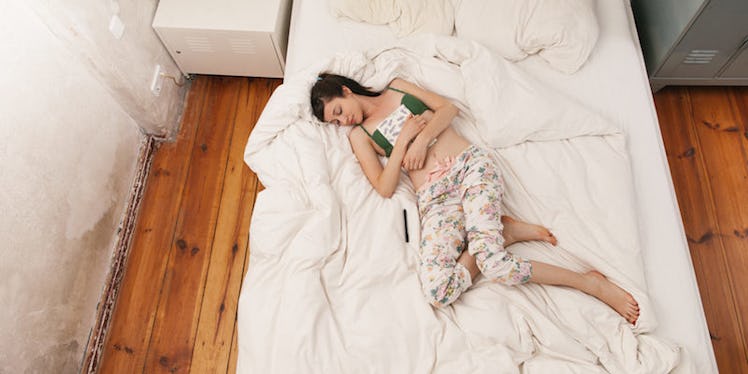
If You Consider Your iPhone Your Third Arm, Your Life Needs Prioritizing
Last year, I spent a few weeks traveling out of the country. It was a much-needed break I had been looking forward to and planning for more than a year. It was a chance for me to get away, see new parts of the world and experience new cultures.
Traveling can be such an amazing experience because it takes you out of your routine and out of what you know, and forces you into the unknown.
It's both disorienting, as you wrestle to find new rhythms and ways to feel grounded, and clarifying, as you have space to think about life, work and your day-to-day life from an outside vantage point.
Though I planned on taking this break from work for a long time, I still checked in often to make sure that nothing major had happened that I needed to respond to. This proved to be more difficult than I anticipated; WiFi was hard to find and often unreliable.
As a day or two would pass without a chance for me to check in on email and social media, I would feel my anxiety growing. What if someone needed me? What if something major had taken place?
When I would finally get some WiFi and check in, I would be disappointed. Though I usually had a couple of emails to respond to, they weren't anything major. Even worse, if I didn't have any incoming media, I would feel pretty sad.
As I noticed these feelings, I came to realize there's something my phone does for me: It gives me a high.
When I have incoming notifications and emails, it is stimulating. My hopes jump as I wonder what it could be, who is contacting me and how will I respond. Physiologically, I can feel my heart rate increase, even if it's just the slightest bit. It's like the smallest dose of adrenaline.
I love getting emails and notifications; I love feeling important.
What I realized while I was away, however, is I was addicted to that little jolt of hope that comes from checking my phone. On my trip, I told most people in my life that I was leaving and I would only have limited Internet access. I planned it this way, and it worked. Very few people contacted me, and I was disappointed every time.
I came to know two things about my phone:
My phone has power
I feel appreciated, needed and valued when I am contacted, mentioned, emailed, etc. My phone facilitates connections with the people in my life, both important and unimportant. It feels good to be connected to and contacted by these people, but I also feel sad and unloved when no one reaches out.
I was addicted to my phone
The thrill of incoming messages is addicting. My urge to check in was overwhelming at times, and I found it embarrassing.
I spent an hour one day looking for WiFi in Paris only to find out that there was nothing important in my email. I was in France, and all I wanted to do was get online.
I realized I didn't want my phone to have that kind of power over my life; I wanted to be more grounded. I want my time and desire to go toward creating meaningful things, not just responding to whatever comes my way.
Since that trip, I’ve been experimenting with changes in how I relate to and use my phone.
Here’s what I've found helpful:
Shift your focus from responding to creating
I'd rather spend my time creating instead of consuming and responding. I’d rather my best time go toward making things happen than responding to things coming my way.
To do that, I've worked hard to create rules for how I engage with my phone. In order to stay focused on creating, I've put boundaries on my responding and consumption.
Turn off notifications
In order to stay in control of my time and my efforts, I’ve turned off all push notifications. If there’s a notification on my device, I usually can’t avoid checking it. If I check it, then I have to stop what I’m doing in order to take care of it.
That’s more power over my life and attention than I’m willing to let one little device have. It might not be the right solution for everyone, but the fewer notifications I get, the more free I feel.
Pay attention to the urge to check in
When you have the urge to check social media, take some time to wonder what it's all about. Is there something you're avoiding? Is there something specific you want to hear from someone?
What feelings are beneath that desire? What would happen if you chose not to check in? What if you waited until the morning or until after whatever you're doing instead of checking right now?
In order to break your addiction to your phone, you have to be willing to change the way you use it. If your phone is controlling you, then it’s time to make some changes.
Start small and see what happens; you’ll likely be surprised (like I was) to find that if you're a little more removed from it, everything will be okay. The world won’t stop, people won’t panic and you’ll find more space for yourself, your musings and creativity.